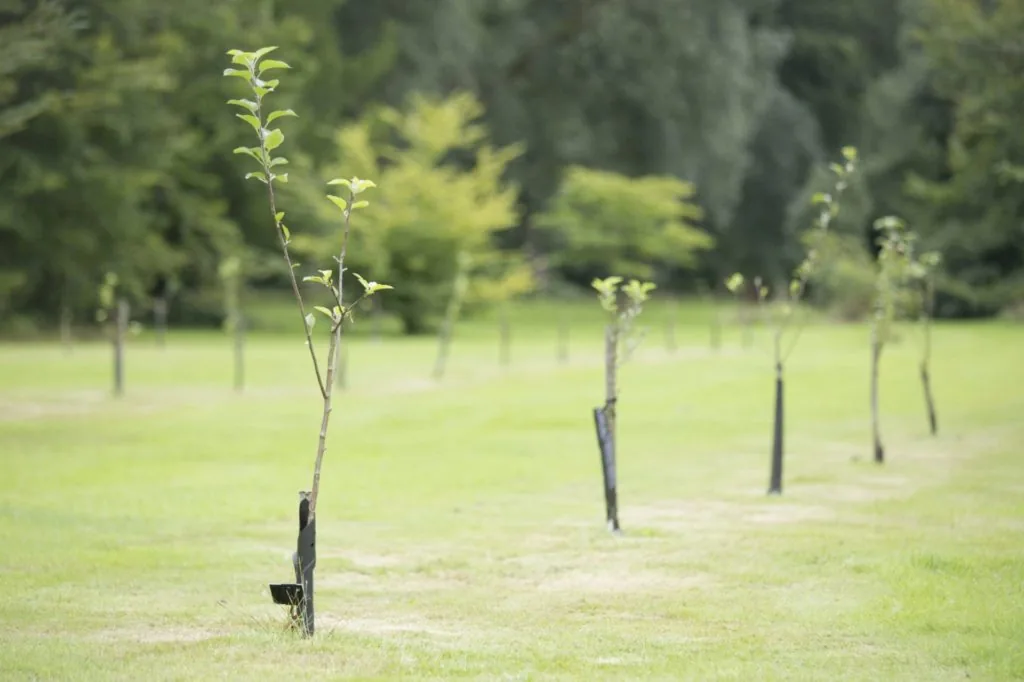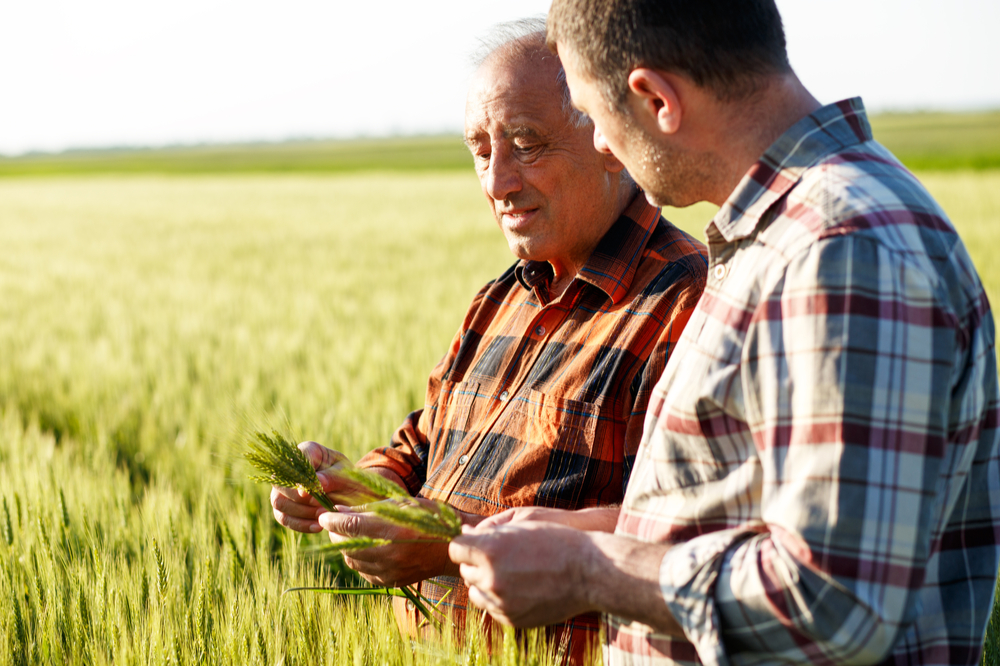
A guide to jointly owned property in the rural sector

By Edward Venmore, Georgia Day, Rose Westwood
16 Nov 2023 | 5 minute read
Due to its very nature, farms and agricultural land can often give rise to a number of challenges and disagreements. Farms are often run by multiple generations within one family and the way in which land is owned can create potential issues and disputes. For example disagreements between siblings over the running of a jointly owned farm.
This guide looks into the issues around jointly owned farmland, with particular focus on arrangements outside of marriages, such as multi-generational farms or farms owned by unmarried couples.
We will consider how property can be split between joint owners and how to document this in a way which hopefully avoids any future disputes. We will also reflect on what can be done if joint property owners do fall out and wish to go their separate ways but have different opinions on what should be done with the property.
How is co-owned property held?
If the property is held as joint tenants, both of you will own the whole of the property, rather than each having a distinct fractional share in the property. In the event that you sell the property, or separate, it will be presumed that both parties own the property equally, regardless of your respective contributions to the purchase price. On the death of one co-owner, their interest in the property would automatically pass to the remaining co-owner without any further action. The surviving co-owner would then own all of the property and on their death, it would form part of their estate. This is known as the “right of survivorship”.
We often see this type of ownership with married couples.
If a property is held as tenants in common, each of you will own a specified share in the property. You need to consider whether each person’s share will be fixed from the outset or whether the shares will vary according to the financial contributions made by each person during your ownership of the property.
Unlike joint tenants, as you own a specified share you can leave your share to someone else in your will. Disputes arise in this context where it is not clear what percentage share of the property each co-owner holds. This can often be the case with family farms.
What legal protection is there?
Where a dispute arises, the Trusts of Land and Appointment of Trustees Act 1996, also known as 'TOLATA', is the key piece of legislation that allows one of the owners of jointly owned property to petition the court to make a decision regarding the dispute. TOLATA also protects other parties who may have a hidden beneficial interest in the property (e.g., parties who have a financial interest in the property).
TOLATA gives the court a wide-ranging power to:
- Determine the intentions of the person who created the trust of land;
- Force the sale of land or property;
- Allow a co-owner to reoccupy a property when a co-owner refuses to leave;
- Allow other parties who have a beneficial interest to recover their financial interest;
- Determine what share of the property each co-owner is entitled to; and/or
- Determine the nature of ownership.
Who can bring a claim under TOLATA?
Section 14 of TOLATA provides that any person who is a trustee of land or has an interest in property subject to a trust of land may make an application to the court for an order under this section. This can include (but not limited to):
- a person who is a trustee of land;
- a beneficiary;
- a personal representative of a beneficiary;
- the person who created the trust;
- a trustee in bankruptcy;
- a bank;
- a creditor; or
- and even a person who has a right to live in the property.
As you might imagine, such a wide definition can give rise to a number of potential claims by any and all people who claim to have an interest in a property which is subject to a trust. Issues may arise when interested parties have their own agenda and opinions on how a property should be dealt with or a dispute resolved.
Due to nature of farming, where family and business are interwoven, TOLATA disputes are more likely to arise in the rural sector than any other. The most common situations where such a dispute is likely to arise includes:
Type of situation | Examples | |
Dissolution of a partnership | We often see the ownership farmland remain outside of the farming partnership. As a result, the land will continue to be vested in whoever was formally recorded as the legal owner. Where parties decide to dissolve the partnership, it does not mean that automatically changes. | One partner dies and leaves the farmland in their Will to people outside of the partnership; or where the partnership is dissolved, and it is not clear how ownership of the property should be divided. |
Family disagreement | The stresses of farm and family life may lead to multiple scenarios that can give rise to family disagreements. Where a disagreement is regarding who is entitled to what piece of land, the court can be asked to step in under TOLATA to make a determination. | Following a disagreement, there might be a need for families to farm their own sections of what was once a family farm. |
Family breakdown | Where family tensions become irreparable, a clean break between family members is the only way forward. In these situations, the aggrieved party may make an application to the court to determine a division of the farm under TOLATA. | Often there are multigenerational famers living on one holding, making it inextricably difficult to amicably divide assets or provide the financial means of assisting an aggrieved party to leave the farm. |
In determining an application, the court will consider a wide variety of factors:
- Whether the property is still needed by the parties as a family home;
- Whether the property is required to provide accommodation for the duration of a co-owner's life or their surviving partner;
- Whether the property is required until a specific event occurs;
- Whether the property is needed for the benefit of children following a family breakdown;
- Whether the property is needed to allow a business to continue;
- Whether there has been misconduct by a person applying to the court for sale;
- The circumstances surrounding the beneficiaries including age, mental capacity, frailty or suitability to live in the premises;
- The intentions of the parties, especially if there is a written agreement;
- If a request for sale is brought forth by a creditor; and
- Whether one co-owner is declared bankrupt.
Are there alternatives to court?
It is very expensive and time consuming to litigate and we would always try and resolve matters before court proceedings are issued. Going to court is a last resort. There are different ways in which disputes can be resolved without recourse to the court, three of which are detailed below:
- Negotiation where the claimant and defendant's legal representatives will try and settle the dispute on behalf of their clients.
- Mediation where a qualified mediator will be instructed to help facilitate the resolution of the dispute. This is helpful where relationships have become irreparable.
- Arbitration where a specialised third party will be appointed to make a decision that will be binding on all parties to the dispute.
How can we help?
There are a number of steps that we can assist with that can avoid TOLATA disputes, such as, preparing deeds of trust for co-owned land, preparing extensive Partnership Agreements and Cohabitation Agreements. In the event that these methods are unsuccessful, and a dispute does occur, we can advise on all aspects of TOLATA court claims. Read more about our specialist agricultural lawyers.
Key take away points:
With the above in mind, our top tips are:
- Prevention is better than the cure - don't be afraid to discuss these issues as a family. If you don’t think ownership of the farm is clear currently, or that it could become confused when it is passed to the next generation, it is better to have a discussion about it in advance;
- Well drafted Wills, Partnership Agreements, Declarations of Trust and Cohabitation Agreements are key in avoiding disputes. Make sure you have the right documents to assist if a dispute arises or if a sale of land needs to be considered; and
- Disputes over jointly owned land are complex. Contrasting views and opinions can lead to costly court proceedings. The most cost-effective methods of resolving the dispute would be to engage in one of the above forms of alternative dispute resolution. A court claim should really be considered as a last resort. The costs involved can quickly become significant and effectively erode the equity in the land in dispute.
Our podcast
Jointly owned property in the rural sector has been a recent topic of discussion in our Experts in the Field podcast, hosted by Edward Venmore and Rose Westwood from our Farm, Estates and Rural Land Team and Georgia Day from our Family Team. This article sets out some of the points discussed in the episode, listen to it in full below.











